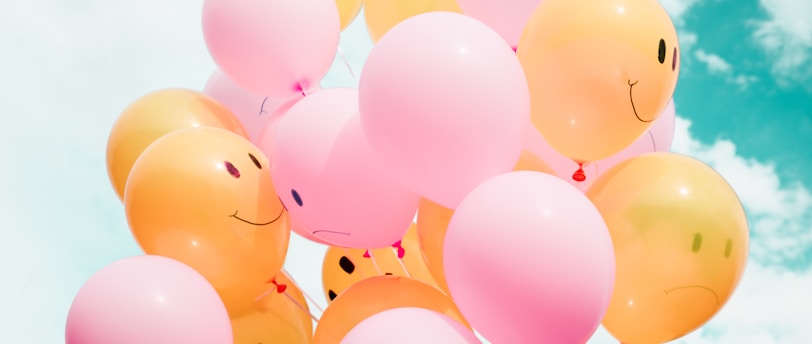
Feelings
"The Way We Feel: Cultural Conditioning and Emotional Expression" This insightful reflection examines how culture shapes our emotional expression, from grief to joy. Using sharp observations and relatable anecdotes, it challenges societal norms that suppress feelings, inviting readers to rethink how upbringing, class, and nationality shape our emotional world.
2/6/20254 min read


We all differ in the way we express our feelings and differ also in the way we allow ourselves to acknowledge our feelings. Not just as individuals but in broader terms, according to sex, class and nationality.
Just watch the TV the next time they bury an Italian or an Israeli, and notice what the widow or bereaved parent is doing. She will be weeping, wailing and screaming; kneeling by the graveside banging on the ground.
In our culture, if you’re not pushing a trolley around Asda within two weeks, people say, “Oo Mary’s taking it bad.” Widowed after thirty-five years and she’s expected to show a, “stiff upper lip,” …….literally.
You overhear people in the queue at the grocers, finish off a tale with the words, “I’m not going to let it bother me,……… he/she can do what they like for all I care.” As though they have any control over whether it bothers them or not. I see people who tell me they never cry, as though it was something to be proud of. When others tell me that what so and so did made them feel angry and I ask, “And how did they react when you told them just how angry you felt?”
They often say, “Well I didn’t tell her in so many words, but she knew I were mad.”
It’s not just expressing anger that people seem to have problems with. When I ask people who tell me they think such and such a person is wonderful , “How did they react when you hugged them and told them?” They reply, “Get out,…………… she’d think I’d gone nuts.” If you’ve ever wondered why, as adults, we become so restricted on the way we express our emotions or why it is that we even try to deny to ourselves that we feel particular emotions, just sit for half an hour in a shopping centre and watch adults with their children and grandchildren. Better still get yourself in invitation to a children’s birthday party where none of your kids are involved.
And you’ll hear …………….
“Don’t cry,” …………..the kid’s trapped his finger in the door, or feels the world’s come to an end because he didn’t win.
“Don’t show yourself up,” ……..he’s having the time of his life, you feel embarrassed and say, in effect, "Don’t show me up".
“Now Katy, that’s not the way to behave,” ……….. she’s as mad as hell at being cheated out of pass the parcel by the creepy kid from next door and she’s just about to throttle him.
"Now you're just feeling sorry for yourself"....... I'd love the kid to turn round and say, "And?" I wonder sometimes if it's just amongst the Brits that feeling sorry for yourself is some sort of sin.
“Oo ‘e’s a real lad,” or “Oo ‘e’s such a temper,” ………………….it's really not his turn but he barged to the front and you let him go first just to save all the fuss. All he hears is, “’atta boy.”
“Here now shut up,” ………….mum angrily thrusting a biscuit into the hands of a crying child, constrained in its push chair. Surprise, surprise, thirty years on the same child feels like crying, doesn’t, then eats to excess, and says she’s depressed.
The trick in our society is to demand that other people keep their emotions to themselves.
The widow has to be brave, not for her own sake but to meet the needs of those around her. Many have, delayed-shock, simply because it’s important to delay their tears till everyone’s gone. Then they can cry all they want, so long as they don’t insist on crying when you visit.
You see someone and ask, ”How are you since so and so died?” They say OK, and then burst into tears and blubber, “I feel terrible.”
Do you say nothing; just hold them and let them cry? Of course you don’t. You feel embarrassed and wish they would control themselves. They sense your embarrassment, sniff, apologise for crying and do you the favour of changing the subject and ask about your kids.
It’s not just other people’s expressions of sadness that we have trouble with.
You’re going through M & S and you’re confronted by someone you were at school with ….. who’s been in California for the last ten years. She shouts, “TERRY,” runs over, flings her arms around you, kisses you, the whole store turns to look.
Do you reciprocate? ……… not a bit of it. Even assuming that you’re thrilled to see her, you still back off, blush, and almost whisper, say, “How are you?” In such a way that invites any response to be made in the same sepulchral tones. You also, sort of, crouch down. It may be nice to see her but you now feel awkward and know that your response has been somehow inadequate …….and people are still looking.
Life can be tough if you’ve been brought up in a non-hugging family, and get mixed up in a hugging one. Even more weird are families where emotional expression has been formalised and ritualised. Everyone is expected to kiss Great Aunt Fanny’s cheek, either on greeting or taking leave. When someone grabs hold of her and gives her a big hug and a kiss, it becomes a family joke, thus defusing the embarrassment; they’re usually excused on the grounds that they’re Irish. When little Johnny doesn’t wish to kiss her, he’s cajoled into conforming and said to be embarrassed. No-one suggests that he thinks, as they all do, that he just doesn’t like her. So why should he kiss her? The idea would be too awful to deal with.
Remember,
All we control is how or whether we express our feelings. We can’t control whether we have them or not. It’s when we put a lot of effort into trying not to have feelings that we have problems